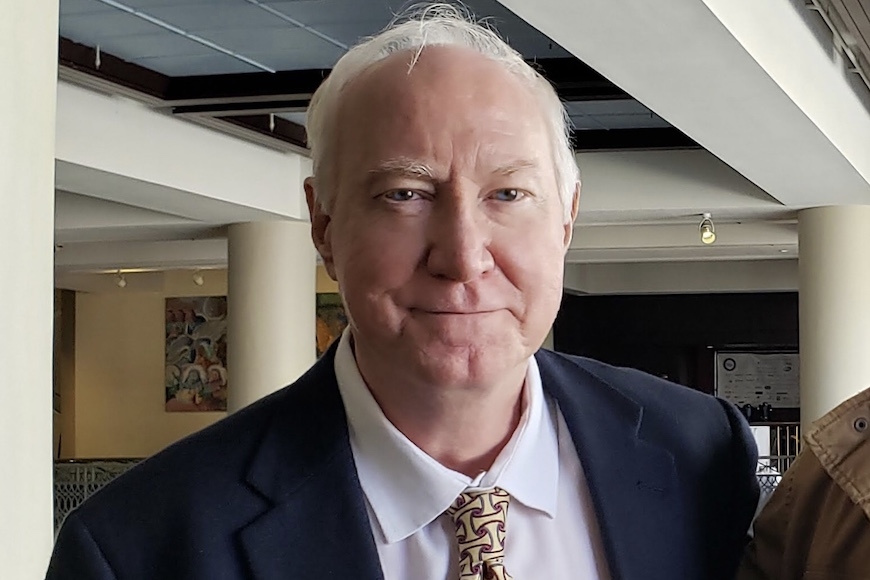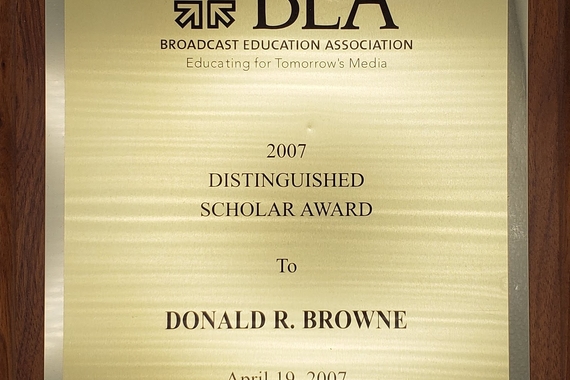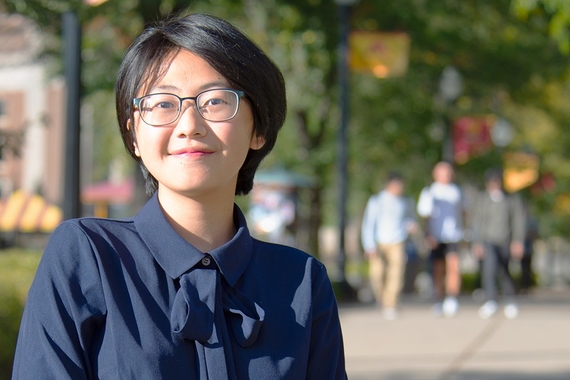Q&A with Professor Eric Kramer
New to the University of Minnesota, Professor Eric Kramer is eager to experience academics in a different region of the country. He looks forward to continuing his communications research, getting back on a college campus, and mentoring students “as they enter broader horizons of the world evolving from young adulthood into the complexities of life.”
What brought you to the University of Minnesota? What role do you have here?
After 33 years at the University of Oklahoma (OU), I retired as Presidential Professor of Communication (now Emeritus) to follow my partner, Professor Elaine Hsieh, PhD, to the University of Minnesota as she took on the duties of chairing the Department of Communication Studies. I will take on a joint-appointment contract position as Professor of Journalism and Communication in the fall of 2023.
What are your areas of specialty?
My areas of research are communication theory, intercultural communication, international communication, communication and technology, mass communication, and environmental communication. Over the years, I have published in all these areas and in zones of overlap.
How did you become interested in what you study and teach?
I had my first radio show every Sunday for 15 minutes on WMRN in Marion Ohio when I was 15. My mother drove me to the station. When I went to college at Ohio University, I had a radio show for a time but then became interested in environmental sociology and continental philosophy. I drifted from mass communications and took degrees in these two areas but then returned to mass communication for my doctoral degree.
What questions and ideas are you most interested in exploring right now? What problems does your work seek to address?
I am fascinated with new technologies that are impacting authenticity in mediated messaging (deep fakes and such) and their potential dangers for democratic culture and institutions. I wrote my first paper on the ethics of digital manipulation and visiocentric (as opposed to Derrida's notion of phonocentric) culture back in 1992, well before it was widely recognized as an issue for most scholars. I am also very interested in the role of science within society, especially with regard to environmental communication and policy-making.
What courses are you currently teaching or looking forward to teaching soon? What's special about them?
I will be teaching environmental communication as well as international communication. I expect to also teach communication and technology and intercultural communication at some point. Other than the history of communication theory, which is the doctoral capstone course at the University of Oklahoma that I taught for 33 years, these have constituted my primary pedagogical wheelhouse.
What are some takeaways students will get from your courses?
I tend to first lay the historical groundwork for the development of the content, be it communication theory or technological change. Then we trace threads from the past into the present and evaluate emerging challenges. Critical thinking to me is a redundant phrase. I also believe that if you don't read well you cannot write well and if you cannot write well you probably have muddled thinking. So I, like most teachers I presume, first and foremost work with students to develop their arguments and to mentor them as they enter broader horizons of the world evolving from young adulthood into the complexities of life. As children, most of us are harbored in a sheltering bay. But the time comes when you move out onto open waters and college is a big part of that transition for students. I know it was for me.
What are you most excited about right now?
I'm pretty eager to see how, and to what extent, if at all, students in Minnesota differ from students from the Oklahoma/Texas part of the nation.
I'm also very eager to get back into the classroom and to get on the U of M campus. For the past year, I have been Zooming classes and seminars back to Oklahoma as I shepherded a few doctoral students through their dissertation defenses. I needed to stay the course with them as they were in the last stages of completing their degrees. I will officially retire from OU in June and begin at the U of M in the fall.
I understand the strengths of online instruction but I'm old school. To me, the university campus is a very special time and place and I crave that environment. That has been my home basically forever and I miss it dearly. Face-to-face interaction is important. I want to hear not merely what you say but how you say it. Silence can be a message too. I want to read the nonverbal signs, which communicate as much if not more information than verbal announcements.



